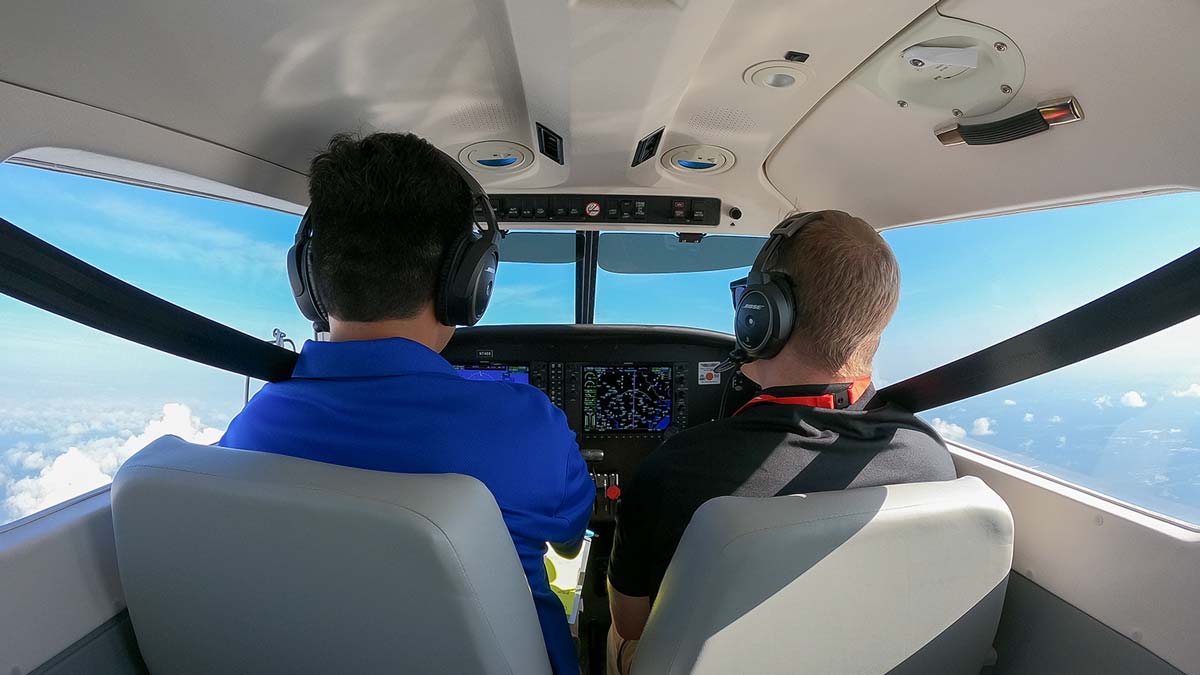If you ask any youngster what they’d like to be doing as they get older, they will still say “pilot”. It’s a profession that provides adventure, technical rigor and freedom. Once the dream becomes a reality, every pilot who wants to become a pilot begins to wonder: How much do pilots earn?

Image credit: flightschoolusa.com
It’s more than just a question of a number. Understanding the current salaries of airline pilots requires navigating through the mix of starting pay, the growth trajectory structure of benefits, and real-world tradeoffs.
Start Small: Why a lot of pilots start in the regional world
The majority of pilots do not begin their career in the cockpit of Boeing 787. Their careers typically begin with regional carriers, in which they operate smaller aircraft on shorter distances. These are the learning foundation for future captains and their compensation reflects this.
A regional airline pilot salary typically starts around $45,000 to $70,000, depending on the airline and whether the pilot comes with flight experience or is fresh out of school. Regional experience may seem unimportant compared to the price of flight school, but it’s crucial to greater opportunities. A lot of regional carriers are increasing pay quickly due to the pilot shortage.
Commercial Pilot Salary: Not Always What You Think
This is where it gets interesting. Commercial pilots don’t have to be operating with major airlines. It means you’re entitled to receive compensation from an airline for your flights. This could be cargo, charter, sightseeing, crop-dusting, firefighting, or corporate jets. Each of these avenues has an entirely different compensation plan.
A charter captain can make $60,000 while a Gulfstream G650 business captain can earn up to $200,000 per year. The range of commercial pilot’s pay varies widely because the roles and risks vary too. In contrast to the more structured high-level of airline pay, salary in the commercial industry is generally contingent on negotiations, the contract terms and aircraft types.
When the numbers start to grow
Pay for pilots in USA is more appealing for those who join large airlines and advance in the ranks. A first officer at the largest U.S. airline might earn between $90,000 and $150,000. Meanwhile, the captain of a senior position flying international wide-body routes can earn $300,000 to $400,000, occasionally more with overtime or bonuses.
These numbers don’t tell the complete story. Seniority is often associated with long hours, fatigue due to long distances and lifestyle compromises. It’s a rewarding profession, but not always a glamorous one.
What your check doesn’t show
A major aspect of any airline pilot’s salary negotiation is the discussion of benefits and it is here that many pilots appreciate the value of benefits above the dollar amount. Benefits are a major aspect in enhancing your quality of life. From pension plans to comprehensive medical coverage to rights to travel for family members.
There are many airlines that offer bonuses to pilots who have experience, for example bonus offers for signing up of up to $75,000 and higher amounts, if they have an army background or specific type ratings. These bonuses underscore the pressing need for qualified professionals in the midst of a time when the U.S. faces an aging pilot pool and a growing demand.
What is the purpose of a job?
The path to becoming a pilot in the U.S. isn’t just demanding but also costly. The cost of flying school can be anywhere between $70,000-$150,000. The majority of pilots do not earn six figures over several years. But the benefits in the long run are true.
Many pilots enjoy the security of their jobs, a structured professional advancement, and the flexible schedules that are envied by other professions. For a majority of pilots, it is the experience of flying and the joy that comes from controlling an aircraft that provide the most important advantages.
Final Thoughts
In the USA the salary of a pilot isn’t just about the cash. It’s also about life as well as growth, travel and development. A career as pilots isn’t just an opportunity to earn a living but also an opportunity to live. If you are considering regional positions such as commercial charters, long-haul flights or flights out of the country, each step can bring more money, but also a larger potential.